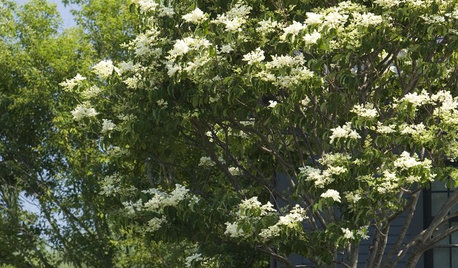black spot question
11 years ago
Related Stories

KITCHEN DESIGN9 Questions to Ask When Planning a Kitchen Pantry
Avoid blunders and get the storage space and layout you need by asking these questions before you begin
Full Story
FEEL-GOOD HOMEThe Question That Can Make You Love Your Home More
Change your relationship with your house for the better by focusing on the answer to something designers often ask
Full Story
COFFEE WITH AN ARCHITECTA Quiz for Architects in Question
Should you trade in your T-square for a barista tray? Answer a few simple questions to find out
Full Story
GREEN BUILDINGConsidering Concrete Floors? 3 Green-Minded Questions to Ask
Learn what’s in your concrete and about sustainability to make a healthy choice for your home and the earth
Full Story
LIGHTING5 Questions to Ask for the Best Room Lighting
Get your overhead, task and accent lighting right for decorative beauty, less eyestrain and a focus exactly where you want
Full Story
REMODELING GUIDES9 Hard Questions to Ask When Shopping for Stone
Learn all about stone sizes, cracks, color issues and more so problems don't chip away at your design happiness later
Full Story
REMODELING GUIDESPlanning a Kitchen Remodel? Start With These 5 Questions
Before you consider aesthetics, make sure your new kitchen will work for your cooking and entertaining style
Full Story
DOORS5 Questions to Ask Before Installing a Barn Door
Find out whether that barn door you love is the right solution for your space
Full Story
GARDENING GUIDESNo-Regret Plants: 5 Questions Smart Shoppers Ask
Quit wasting money and time at the garden center. This checklist will ensure that the plants you're eyeing will stick around in your yard
Full Story
WORKING WITH PROS12 Questions Your Interior Designer Should Ask You
The best decorators aren’t dictators — and they’re not mind readers either. To understand your tastes, they need this essential info
Full Story







User
nitric_acid
Related Professionals
Maple Valley Landscape Architects & Landscape Designers · 70037 Landscape Architects & Landscape Designers · Fort Lee Landscape Architects & Landscape Designers · Garden City Landscape Architects & Landscape Designers · Seabrook Landscape Architects & Landscape Designers · Aloha Landscape Contractors · Canyon Lake Landscape Contractors · Columbine Landscape Contractors · Lees Summit Landscape Contractors · Melrose Landscape Contractors · Miller Place Landscape Contractors · New Cassel Landscape Contractors · Tustin Landscape Contractors · West Chester Landscape Contractors · Chicago Ridge Landscape Contractorsbuford
catsrose
michaelg
dublinbay z6 (KS)
flaurabunda
michaelg
flaurabunda
Krista_5NY
KingsRoseOriginal Author
nitric_acid
michaelg
RpR_
Zyperiris
nitric_acid
RpR_
User
flaurabunda
dublinbay z6 (KS)